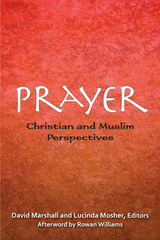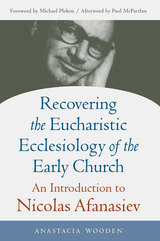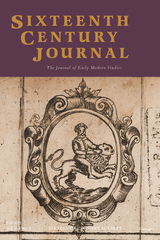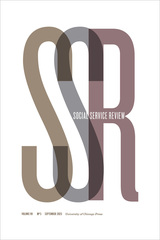Recovering the Eucharistic Ecclesiology of the Early Church
An Introduction to Nicolas Afanasiev
Anastacia Wooden
Catholic University of America Press, 2025
The first theologian who spoke of eucharistic ecclesiology was the Russian Orthodox church historian and canonist Nicholas Afanasiev (1893-1966). He claimed to have re-discovered and systematized the original ecclesiology of the early church, which he called “eucharistic.” Since then, the eucharistic ecclesiology crossed confessional borders and shaped the theological discussion on the nature of the church. Many authors of different Christian confessions developed Afanasiev’s basic intuition while proposing a variety of their own understandings of the “eucharistic nature” of the church: from Orthodox theologians like John Zizioulas and John Romanides to Catholic theologians like J.-M. Tillard and Joseph Ratzinger. Ironically, the details of Afanasiev’s own ecclesiological system remain largely unknown. The aim of this book is to formulate a comprehensive view of Afanasiev’s ecclesiological vision and of its significance for contemporary ecclesial life in two parts.
It is Anastacia Wooden’s conviction that the prevailing “stereotypical” view of Afanasiev’s ecclesiology is suffering from misapprehension of his thought. Therefore, Part one addresses the issues that historically complicated understanding of Afanasiev’s ecclesiology. It will provide historical, theological, and biographical context of Afanasiev’s scholarship by presenting keys to understanding of his eucharistic ecclesiology.
In the second part the book provides a synthesis of Afanasiev’s total ecclesiological vision as well as systematic presentation of six specific ecclesiological issues. It demonstrates how Afanasiev’s methodological assumption that ecclesiology can serve as a tool to make sense of the historical data on the life of the church led to his realization that the early church had an operative ecclesiology which placed the exercise of royal priesthood in the Eucharist as the starting point of the ecclesial structure. In each chapter of the second part, this book provides reflections on the contemporary relevance of Afanasiev’s work. In the current crises of leadership in the Catholic Church (as well as other Christian churches) it may prevent the adoption of arbitrary forms of lay participation in the church governance by reminding church leaders that a theologically meaningful increase of lay participation should always be framed in terms of the increased participation of local churches.
[more]











